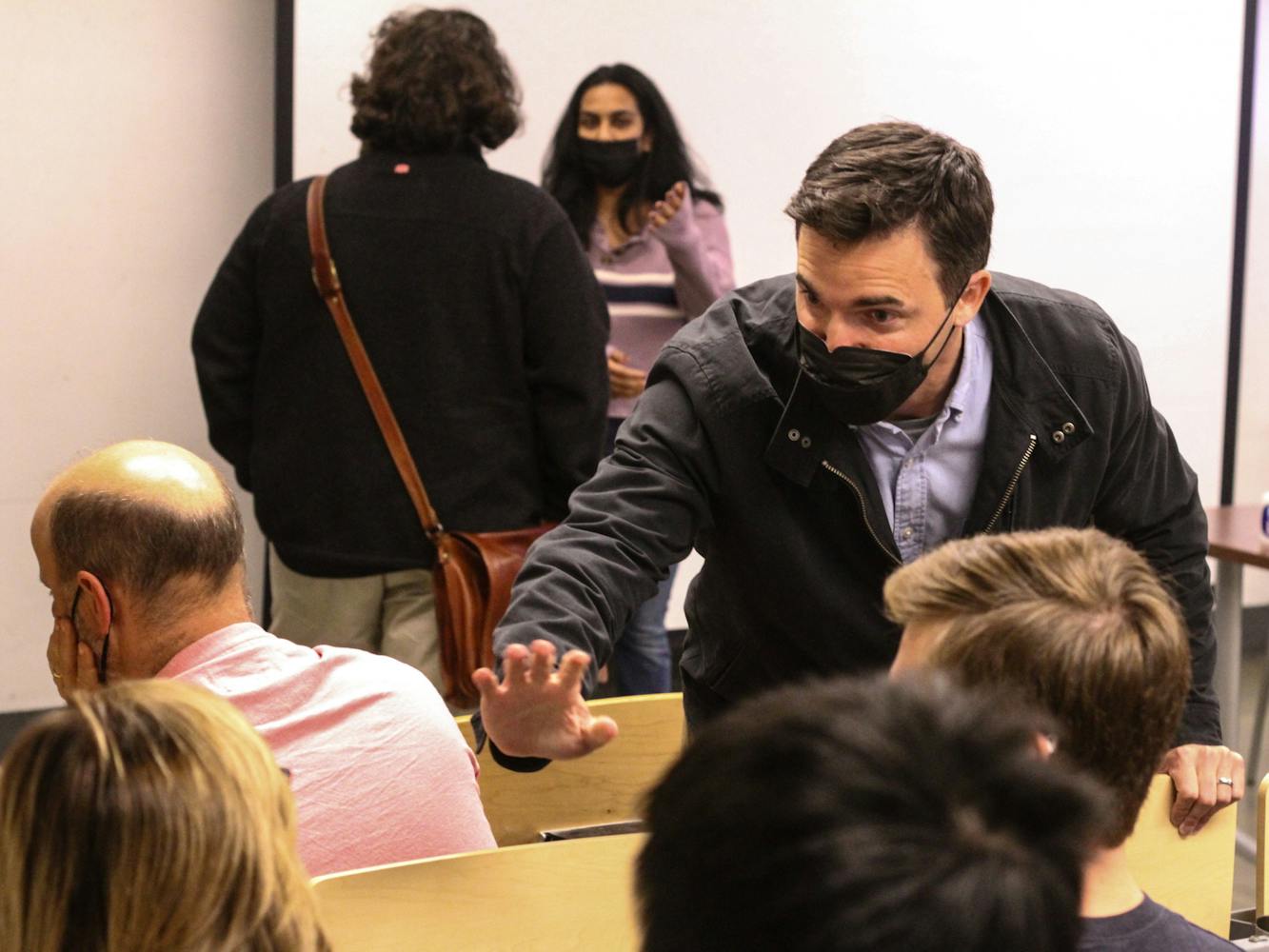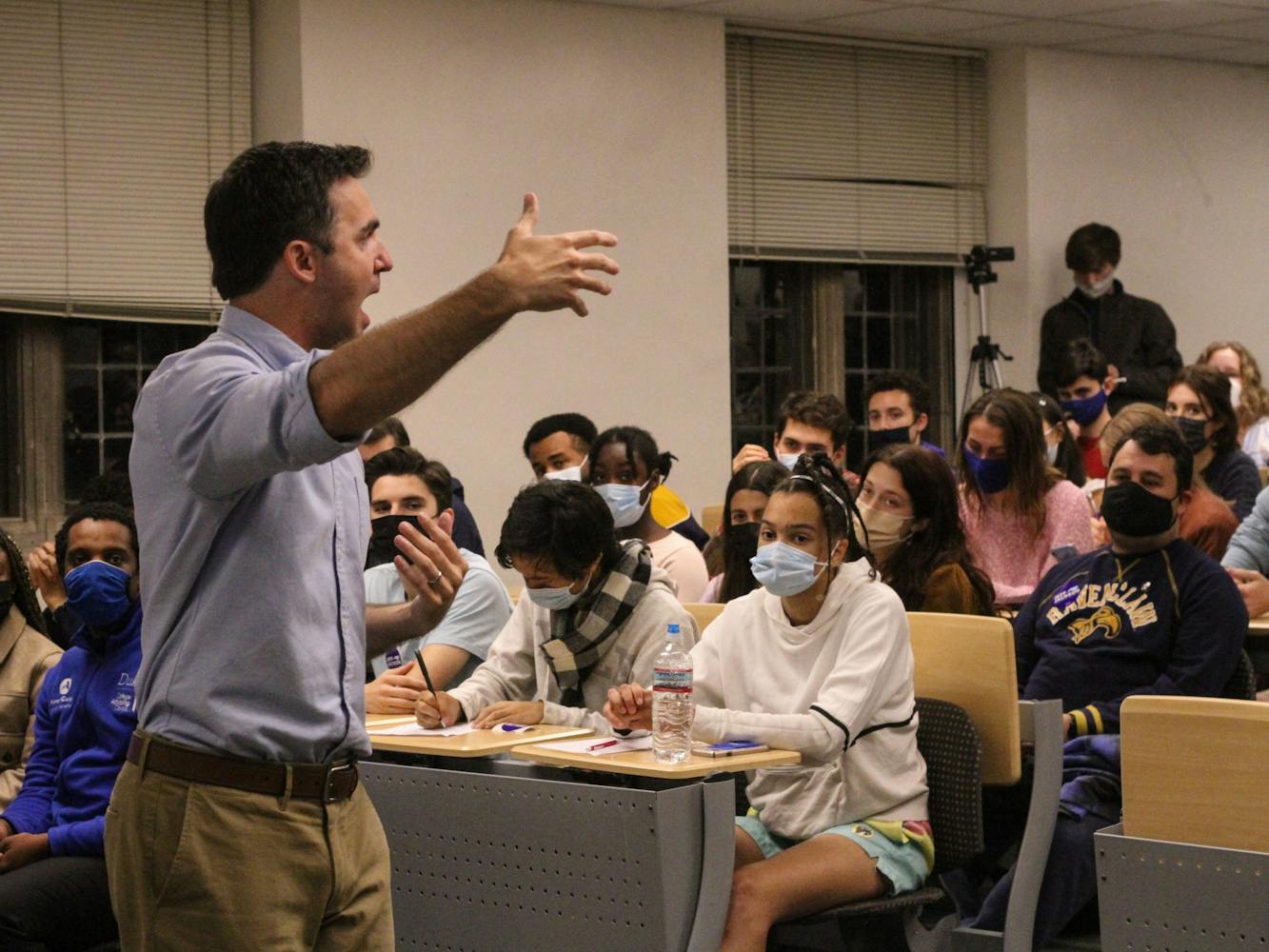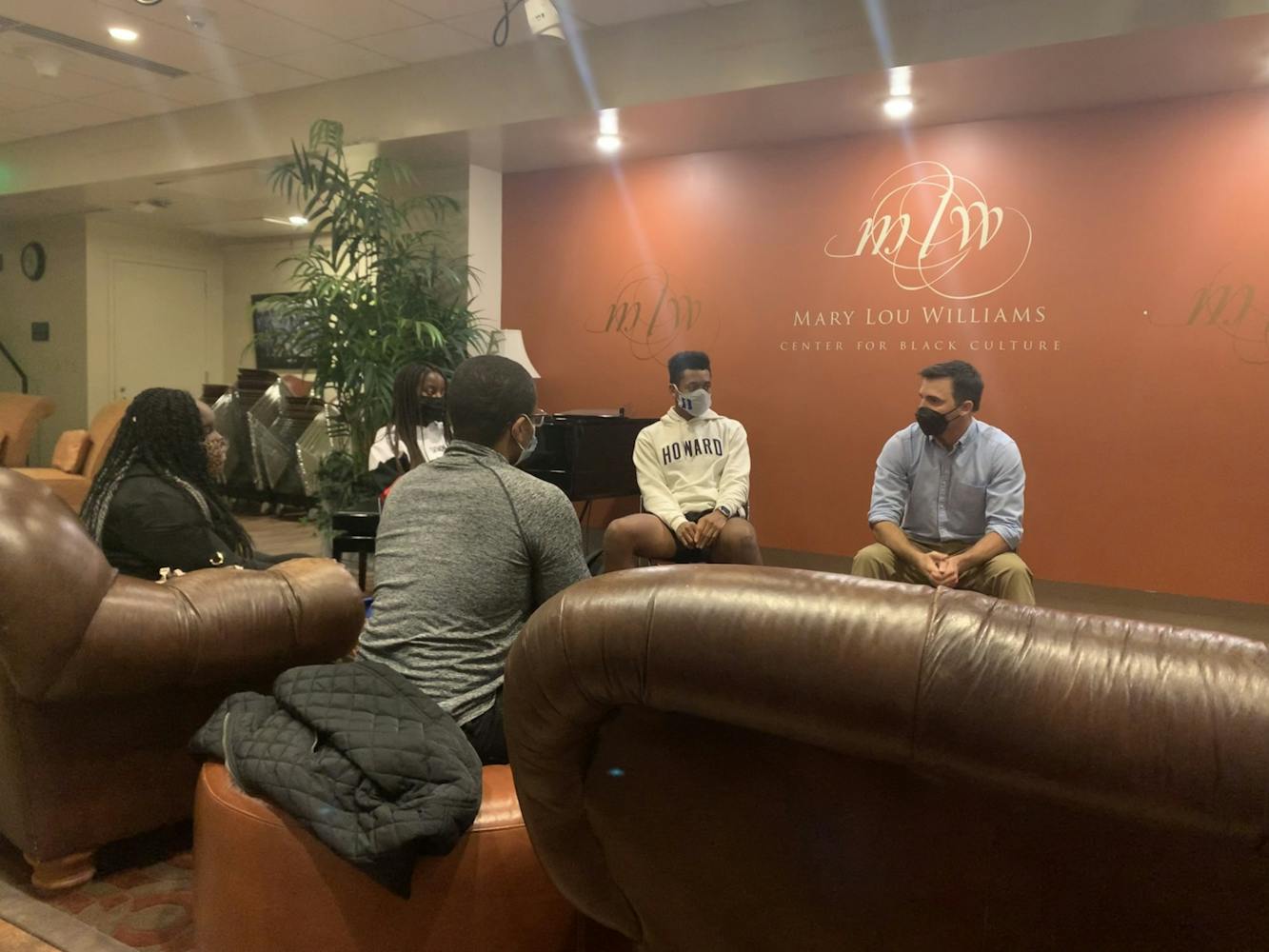North Carolina state Sen. Jeff Jackson hosted a round table discussion Monday for Black graduate students and a town hall meeting as part of his campaign for U.S. Senate.
A Democrat from Charlotte, Jeff Jackson has represented the 37th district in the North Carolina Senate since 2014. He is running for the U.S. Senate as part of the 2022 election. He is also a Captain in the Army National Guard and has served as assistant district attorney in Gaston County.
The round table was held in the Mary Lou Williams Center for Black Culture, and the town hall was held later in the Social Sciences Building. During both events, Jackson addressed concerns related to filibustering, gerrymandering, reproductive rights and education.
“There’s no honest agenda, by the way, without addressing the filibuster,” Jackson said at the town hall. While he supports abolishing it, he does not think the filibuster will be eliminated and thinks reforms such as a talking filibuster or requiring 40 votes to keep the debate going are more likely.
“This is not some hallowed piece of American tradition. … It has not produced bipartisanship. It has just produced gridlock.”
Jackson also addressed the new NC General Assembly district maps, saying they were “very bad.”
“The reason the districts look all crazy with the squiggly lines is because [the General Assembly is] rig fencing the black communities in order to minimize their political power,” he said. He mentioned that the first bill he passed as a state senator was designed to end gerrymandering, which was sent to the Ways and Means Committee.
Jackson also advocated for a new Voter Rights Act, which would end gerrymandering, pass the John Lewis Voting Rights Act and pass the DISCLOSE Act.
"My 'day one thing' is a new voting rights act that has those three features,” Jackson said. “And god forbid anyone who tries to filibuster it. I think Joe Manchin is just wrong about that."
When asked about reproductive rights, Jackson said he believes Roe v. Wade should be codified, given that the current Supreme Court may roll back many protections surrounding reproduction. He also believes the Violence Against Women Act should be reauthorized, with new provisions included with respect to the LGBTQ+ community.
When asked specifically about goals for supporting the LGBTQ+ community, Jackson said he would co-sign the Equality Act on day one and support an anti-harassment bill for universities.
Jackson mentioned at the town hall that in terms of supporting expanding the Supreme Court or instituting term limits, term limits are “far more tempting than expansion.” But “expanding the Supreme Court is not going to happen,” he said.
Regarding education, Jackson said that K-12 teachers make less than they did 10 years ago, and that this is “the big reason why North Carolina is the only state in the country that has not passed a budget."
However, he is “relatively optimistic" that a good budget for teachers will be secured.
“Because all these politicians want to spend $6 billion, and we only get to do it if we can all roughly agree that this is the biggest sticking point,” he said.
Jackson also supports universal preschool for three and four year-olds.
Jackson noted that the issue of housing inequality is a consistent topic throughout all his town hall meetings, and the reasons for lack of affordable housing vary from county to county. In some counties, the issue stems from zoning, Jackson said, while in others, there are problems with water and sewage. Early childhood support, good schools and clean water plans are all part of his goals to promote affordable housing.
Get The Chronicle straight to your inbox
Sign up for our weekly newsletter. Cancel at any time.
When asked about mobilizing Black voters, Jackson said there has to be a personal connection and energy between the voters and the candidate.
“There is no magic wand for ... me to motivate the Black vote. I don't think anybody would say that by virtue of having a Black candidate that's checked,” he said.
At the town hall, he said there was a direct connection between racial equity and how we draw districts. He said that particularly in the South, gerrymandering means “ringfencing Black communities in order to minimize their political power.”
The state senator also addressed issues related to health insurance and climate. He advocates for universal health insurance by 2024 and says it should be addressed with a “sense of urgency.”
Jackson believes that farmers in eastern North Carolina are “great on climate” because they have been hit by two large hurricanes in the last three years. “You just don't find any climate deniers out there,” he said.
He is putting out his climate policy Tuesday. He claims that it is the "most substantive" policy that any of the current candidates will have.
Jackson said his campaign has not taken any corporate PAC money and that he has the most legislative experience of any candidate.
When asked about what America has learned from the COVID-19 pandemic, Jackson said people need someone to step forward and level with everyone about the situation we’re actually in, versus “trading stocks at the outset of the pandemic and not telling anybody what we’re actually facing.”
Jackson made one thing clear—he wants his campaign to be the most transparent “in the history of the state.”
“It’s the right thing to do, and it’s the only way to win,” he said.

Leah Boyd is a Pratt senior and a social chair of The Chronicle's 118th volume. She was previously editor-in-chief for Volume 117.
Alison Korn is a Pratt senior and enterprise advisor of The Chronicle's 119th volume.

Katie Tan is a Trinity senior and digital strategy director of The Chronicle's 119th volume. She was previously managing editor for Volume 118.




